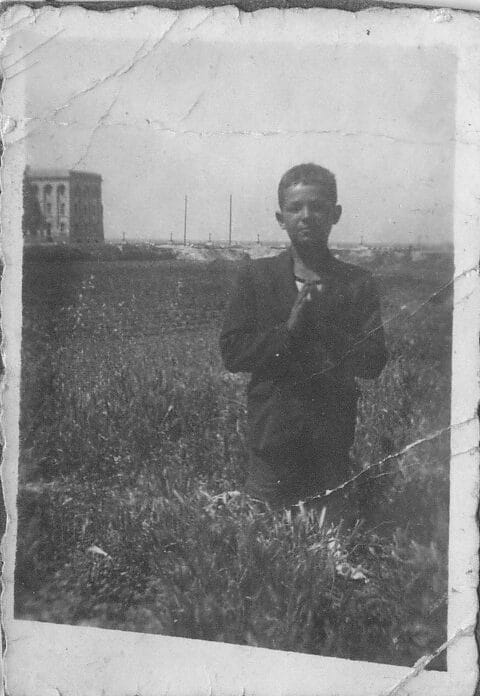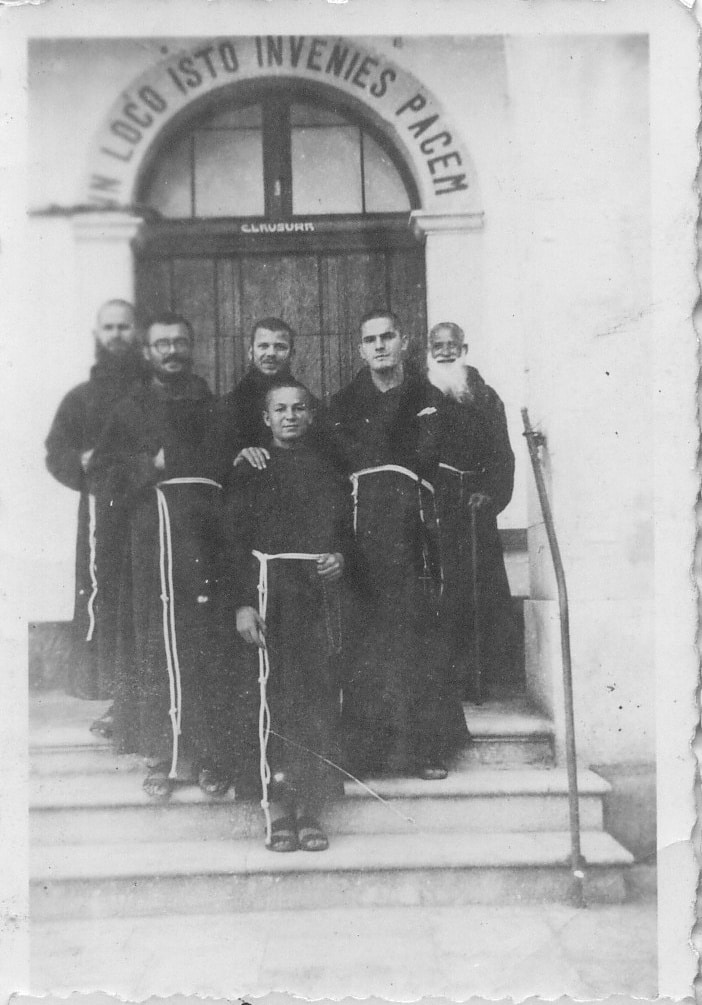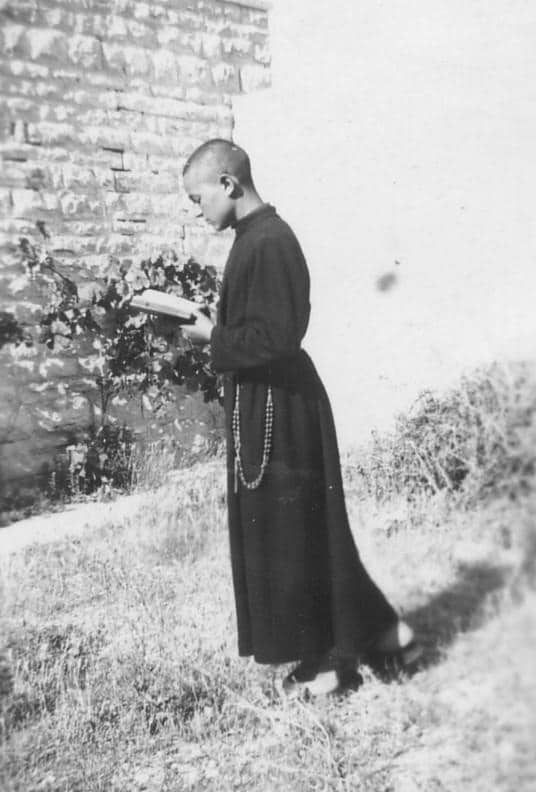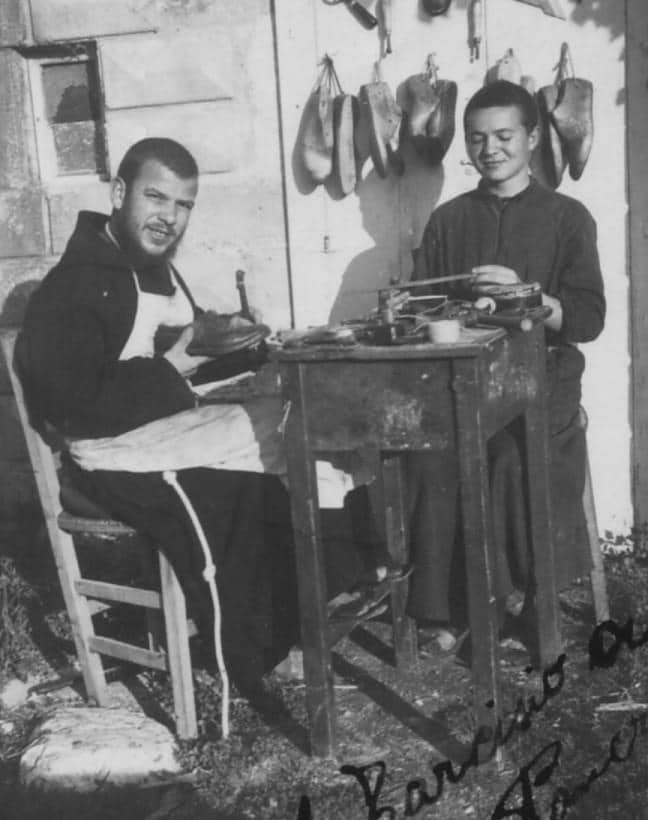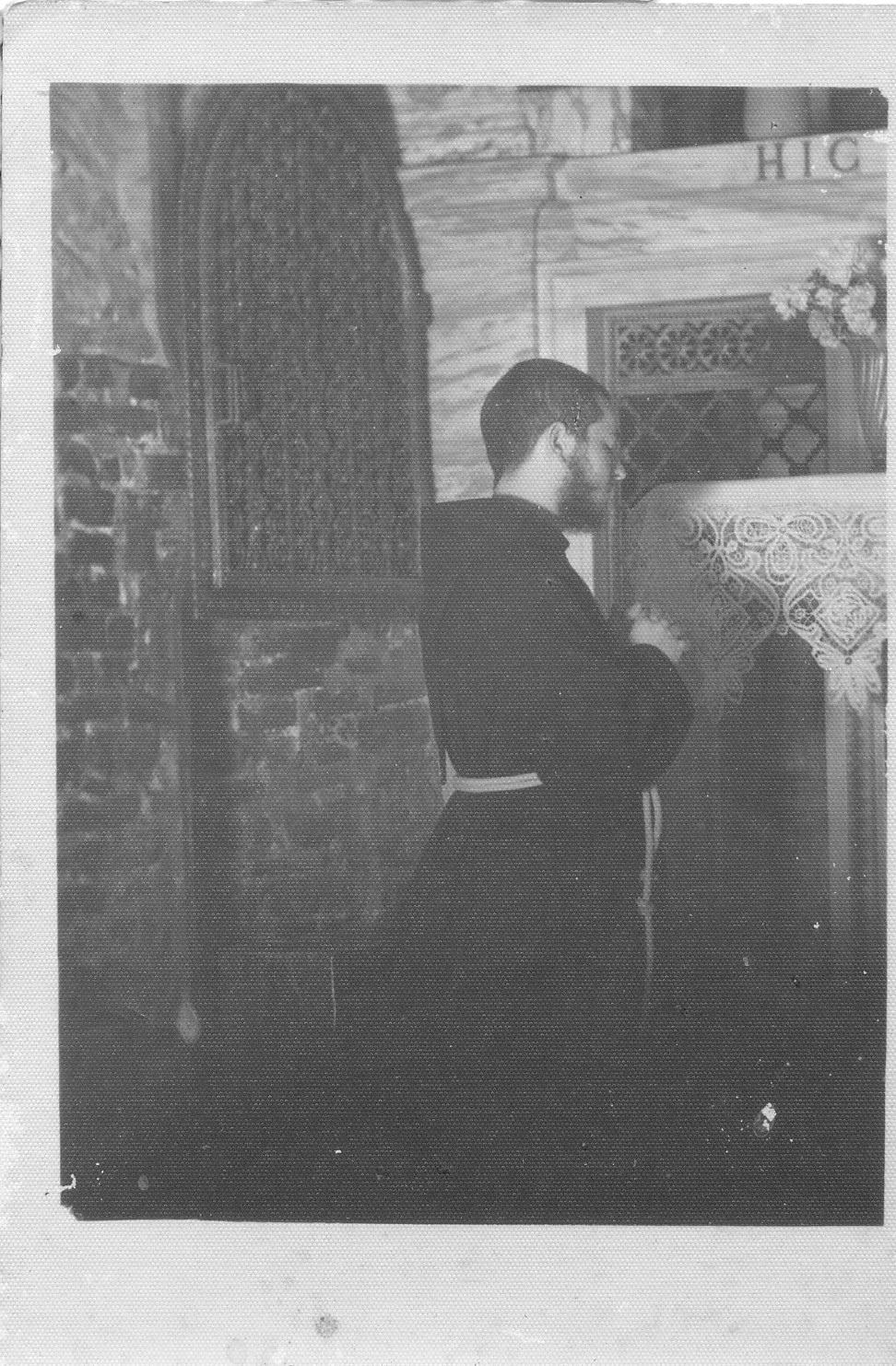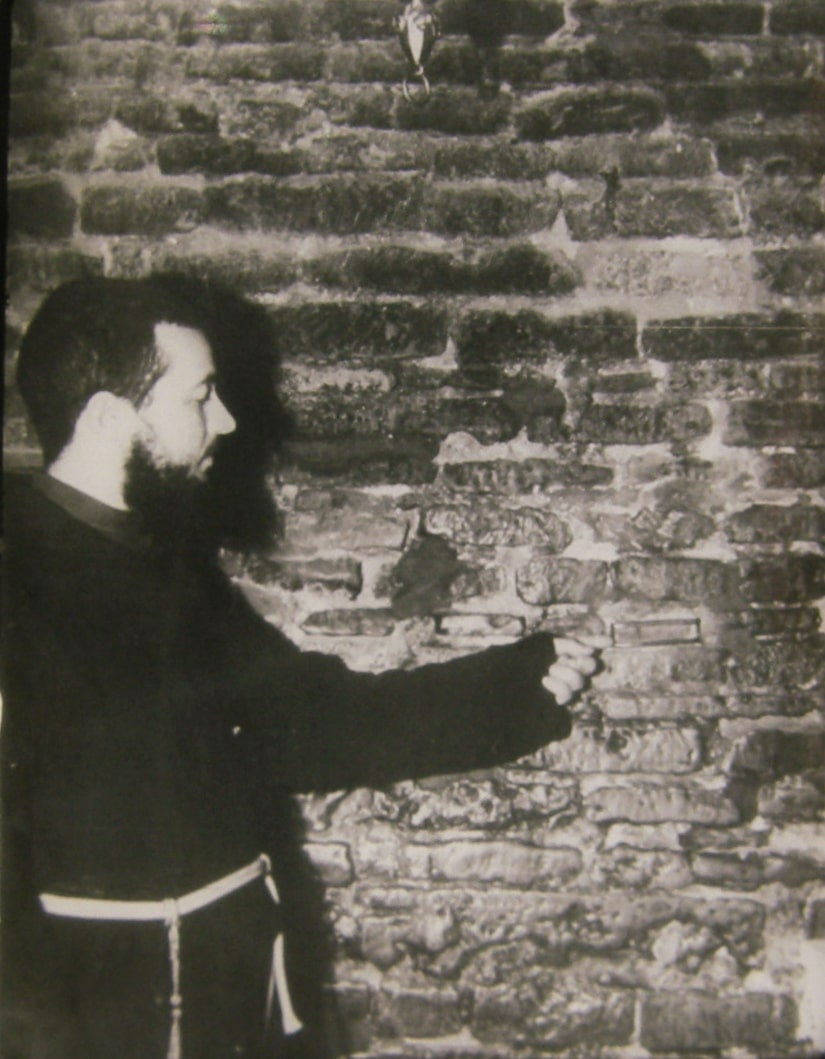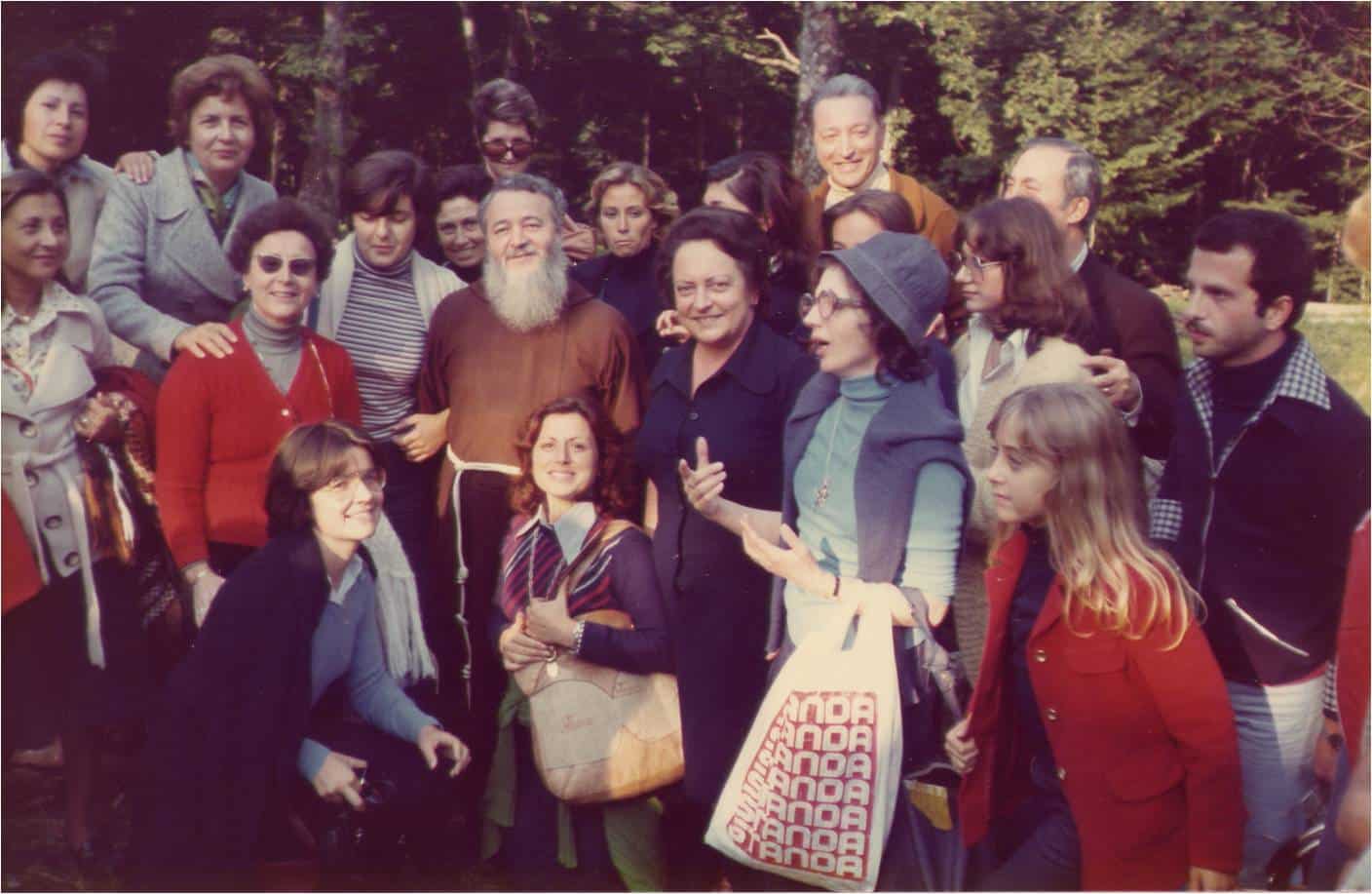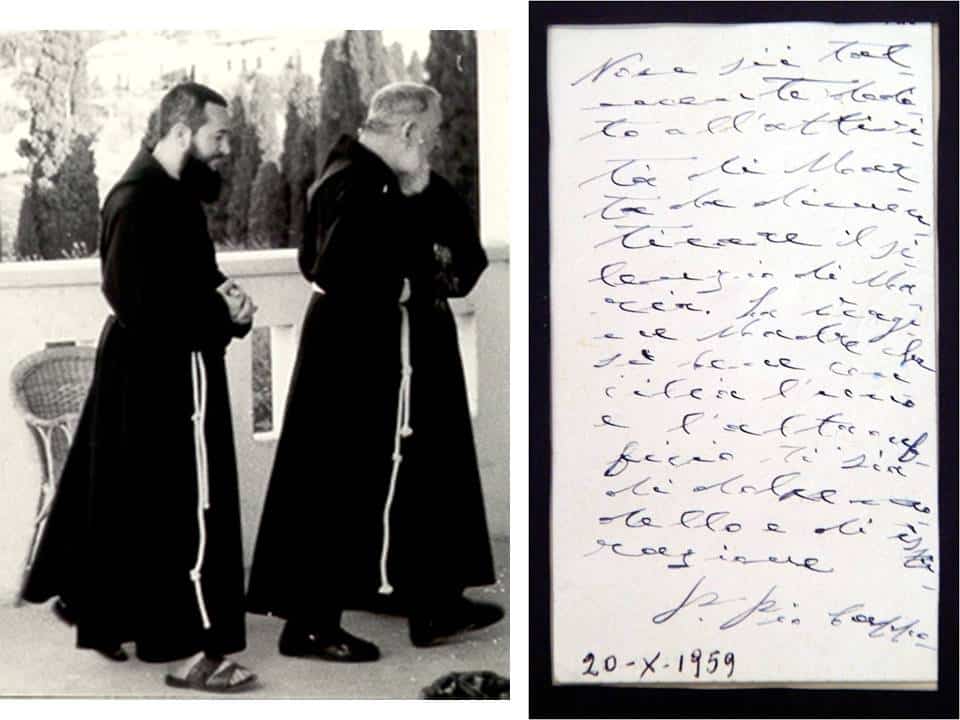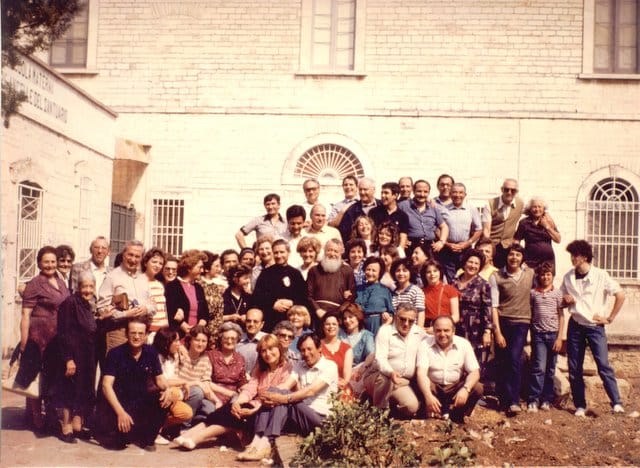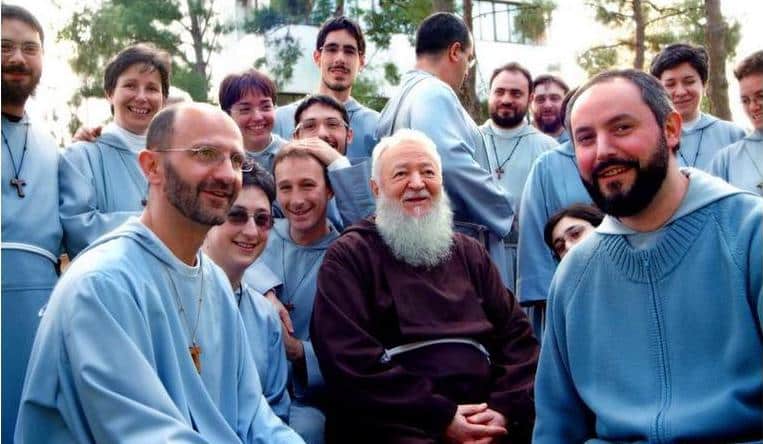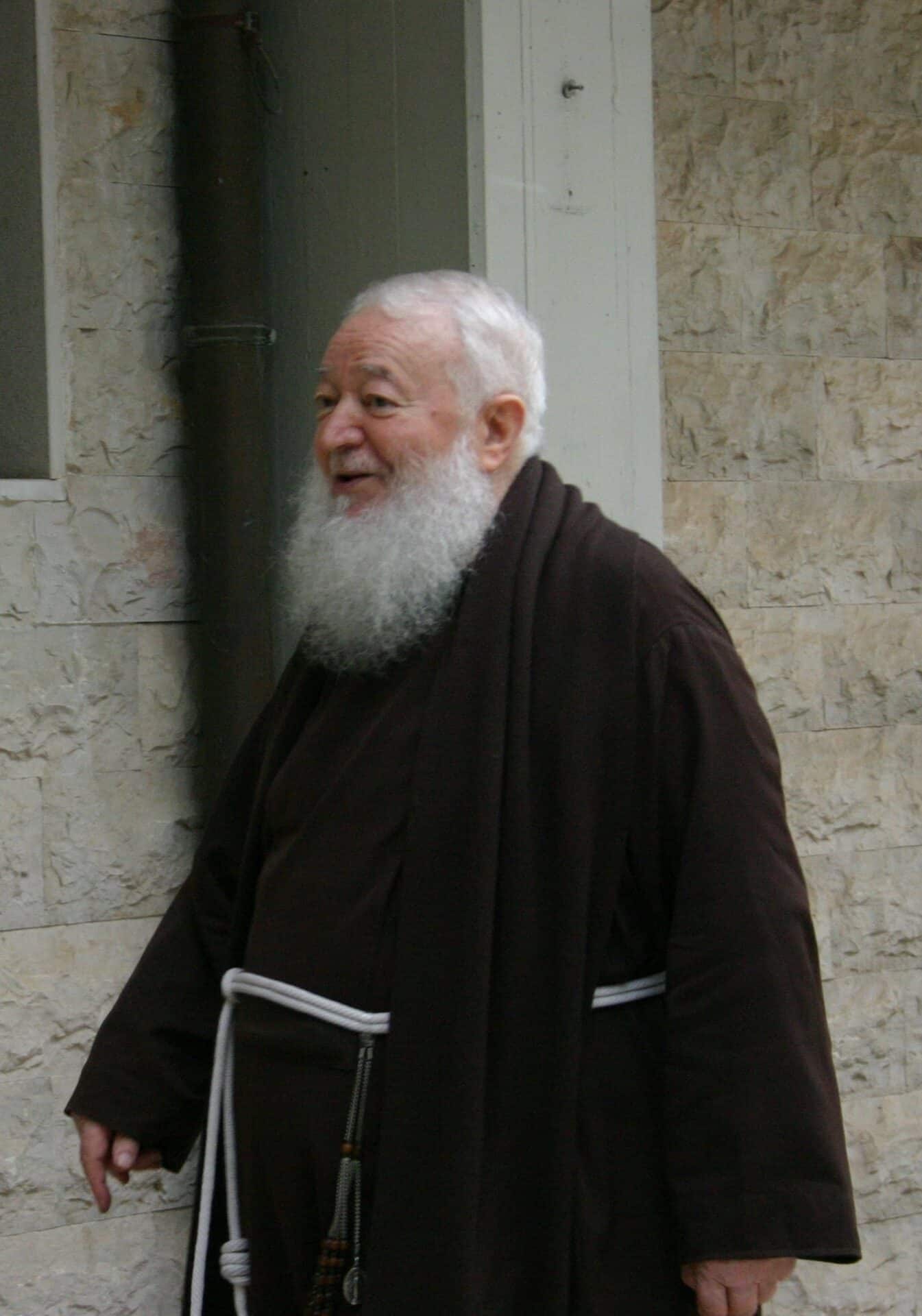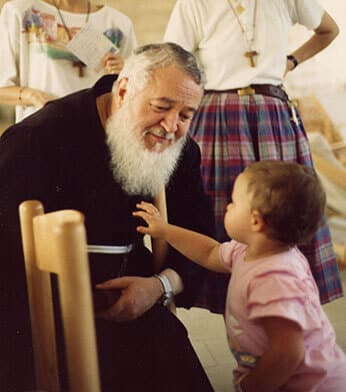Little Nicola
Nicola Gaudioso, was born in Bari on the 15th of November 1926 in Via Durazzo, the sixth and last child of Domenico Gaudioso and Giovanna Vavallo.
He was baptized on 30 January 1927 in the church of Sant’Antonio, in the ‘Madonnella’ district, then a new quarter of Bari that took its name from a shrine, still standing today, with a terracotta bas-relief depicting the Madonna.
The father died whilst still young, in the early 1930s, of lung cancer, leaving his young wife and six children: two girls (Giovanna and Angela) and four boys (Vito, Leonardo, Giuseppe and little Nicola).
The Gaudioso family, poor but very respectable, therefore found themselves relying on the work of mother Giovanna, who sewed clothes for the ‘Fourth Territorial Air Zone of Bari’ (the name of the military area for whom Giovanna worked).
Little Nicola spent his childhood on the streets of Bari in those years. Among other things, he served the parish: he did apostolate work amongst his friends, brought several of them to church to attend services, and was head of the altar boys under the guidance of parish priest Fr Antonio Carucci.
In the convent
He entered the convent when he was only thirteen, on the 10th of December 1939, the day dedicated to the Virgin Mary of Loreto. It was his mother, who wished to have a son who was a priest, who initiated him into this vocation and he gladly indulged her desire. She had discussed the religious order with Padre Pio: after a request made to the Carmelites, but without success, and after discarding the possibility of entering the diocesan seminary, which was fee-paying, the Order of Friars Minor Capuchin was chosen, which, out of a choice of poverty, would not ask for funding. She wanted to send him to the province of the holy Gargano, but he advised her to leave him in the province of Apulia.
P. Pancrazio himself told how his departure from home was. That day, he put the few things he had in a pillowcase, which served as his traveling bag. His mother also added his rosary beads and a piece of bread, which he did not eat because his stomach was tight. Mama Jeanne, in bidding him farewell, entrusted him to the Blessed Virgin Mary with these words:
“Have a good journey; from now on your mother is the Virgin Mary.”
The first night at the Barletta convent, little Nicola missed his mother and, without being seen by the others, covering himself with the sheet, he burst into tears. That night he dreamt of the Virgin Mary who promised to be his mother and help him on his way, just as he had been told by his mother Giovanna.That night he dreamt of the Virgin Mary who promised to be his mother and help him on his way, just as he had been told by his mother Giovanna.
Pancrazio
After the years in Barletta, where he completed secondary school, Nicola did his postulancy in Giovinazzo (BA) and on 13th May 1942, the day he entered the novitiate at the Convent of Alessano (LE), he wore the religious garb as a lay brother. He was given the name Pancrazio (after the martyr Saint Pancrazio, a young Christian martyred at the age of fourteen in Rome on 12 May 304) since he was the youngest of the novices. Fr. Pancratius was happy with the name he received because this saint, despite being so young, had witnessed his faith to the point of martyrdom.
As a novice, he performed various humble tasks such as shoemaker, cook, tending the garden and collecting alms: he always endeavored to take the bottom position because he knew that he would meet Jesus there.
After his novice year, Brother Pancrazio made his first religious profession in Alessano on 19 June 1943 in the hands of Fr Arcangelo da Barletta; only his mother was present. In November of that year he was sent to the community of Scorrano (LE), where he worked as a kitchen worker.
Later, in March 1946, Brother Pancrazio was temporarily transferred to Giovinazzo and from there, on 1 April 1946, he left for Loreto.
On 23 November 1947 he made his final profession in the Holy House in the hands of the Rector of the Sanctuary, Fr Sebastiano da Potenza Picena.
The years at Loreto
During his years in Loreto he took care of various tasks: from 1946 to 1959 he was in charge of the custody of the Holy House, taking care of its cleaning, order, opening and closing, and served at the Holy Mass counter; from 1960 to 1964 he was in charge of the refectory of the Capuchin community, which comprised about ninety members; from 1964 to 1967 he was porter.
Brother Pancrazio stayed in the Marches for thirty-four years: first he lived in Loreto (April 1946 – September 1967) then in Recanati (September 1969 – September 1973) and finally in Civitanova Marche (September 1973 – May 1982).
From September 1967 to September 1969 he lived in the friary in Via Abbrescia in Bari.
From September 1967 to September 1969 he lived in the friary in Via Abbrescia in Bari.From September 1967 to September 1969 he lived in the friary in Via Abbrescia in Bari.. Some were expressly sent by Fr Pio and thus began to weave relationships of friendship or genuine spiritual direction with Fr Pancrazio. Pio and thus began to weave relationships of friendship or genuine spiritual direction with Fr Pancrazio.
It was during the Lauretan period, in fact, that the direct acquaintance with St Pio of Pietrelcina took place. The first meeting took place on 1 April 1950 and on that occasion he became his spiritual son; then others followed until 1968, with two or three meetings a year, sometimes more. For Brother Pancrazio, the figure of Fr Pio was a determining factor in his own personal journey and also in the foundation of the Franciscan Fraternity of Bethany, both as a spiritual father, as a model and inspirer.
The meeting of 20 October 1959 is that of the “spiritual testament“. Brother Pancrazio, after a confession, asked Fr Pio for a life program, which the saint of the Gargano gave him after three days, written on the back of a small picture. It reads as follows:
Brother Pancrazio immediately made this programme of life his own and kept it for about twenty years, questioning himself about the will of God hidden in those words. With time he felt and understood that the content of that writing was not just for him. It would in fact become the constitutive principle of the charisma of the Franciscan Fraternity of Bethany..
In his last meeting with Saint Pio, in July 1968, he said to Brother Pancrazio:
“My son, it is God’s will that you become a priest. It depends on you. However, you will do the will of the superiors.”
Thus, on 18 March 1973 Fra Pancrazio was ordained a priest in Loreto.
The Fraternity
In those years, many people entrusted themselves to Fr Pancrazio for spiritual direction and turned to him for a word of comfort, a prayer. He felt within himself the need to teach them the one thing that was important for personal spiritual growth: to pray, but above all to pray collectively.
The pursuit of this strong flow of prayer led Fr. Pancrazio to embrace the movement of the Renewal in the Spirit, organizing well-attended conferences and gathering his spiritual children scattered throughout Italy and Ticino into prayer groups, which he called ‘Ancilla Domini’ groups because of their Marian and Lauretan traits. These prayer groups initially became part of the nascent Renewal in the Spirit, but over time acquired their own autonomy and charismatic identity.
From the group of Civitanova, founded in 1974 and personally followed and led by him, was born the first nucleus of the Franciscan Fraternity of Bethany. Some members, in fact, who would later be among the first brothers and sisters of the Fraternity, met more often in the Capuchin friary of Civitanova Alta in the company of Fr Pancrazio. The members of this “small group” felt more and more clearly the desire to make a journey together, in order to achieve a communion of life and thus a stable fraternal life. They dreamed of living in the same apartment building, then thought of other forms of sharing, until one day, during a prayer in the home of some of them, opening the Bible, the passage from the Acts of the Apostles 2:42-47 came out, describing the life of the early Christian community. This passage was read as an expression of God’s will and the intention to share a real ‘common life’ was born.
In 1982, the Fraternity was founded. On 30 May, Pentecost Day, the official inauguration of the first Community took place in the convent of Terlizzi (BA).
The first step on this new path was the establishment of a civil association called ‘Casa Betania’ in 1983.
In 1985 there was the recognition by the Servant of God His Excellency Monsignor Antonio Bello, then Bishop of the Diocese of Molfetta-Ruvo-Giovinazzo-Terlizzi, as a private Association of the faithful with the name ‘Casa Betania’ and in 1987 as a public Association of the faithful.
The same Monsignor Antonio Bello, who accompanied the Fraternity in the first ten years of its journey, on 1 December 1992 consulted the Congregation for Institutes of Consecrated Life and Societies of Apostolic Life requesting the erection of the public Association of the faithful “Casa Betania” as an Institute of Consecrated Life of diocesan right with the name “Franciscan Fraternity of Bethany”.
With the authorisation of the competent Vatican Congregation, on 8 December 1998, Solemnity of the B.V. Immaculate Conception, the new Bishop of the Diocese, His Excellency Monsignor Donato Negro, signed the decree at the Mother House of the Fraternity, in Terlizzi.
Fr. Pancrazio recounted that, up to that date, every day he addressed this prayer to God in reference to the Fraternity: ‘Lord, if it is not your work, destroy it‘, stopping only when the Church had put its seal, because the Church’s approval was a guarantee of God’s will.
Fr. Pancrazio was Superior General of the Franciscan Fraternity of Bethany from 1999, the year of the celebration of the Institute’s First Ordinary General Chapter, to 2011. He then continued to live with the brothers and sisters of the Fraternity in the house in Terlizzi, having received permission from his Provincial, participating in all the General Councils of the Institute as a guest.
Fr. Pancrazio died at the age of 89 on the morning of 3 January 2016, surrounded by the affection and prayers of the brothers and sisters of the Fraternity, and leaving as his testament the exhortation to unity.
One of his last thoughts was:
